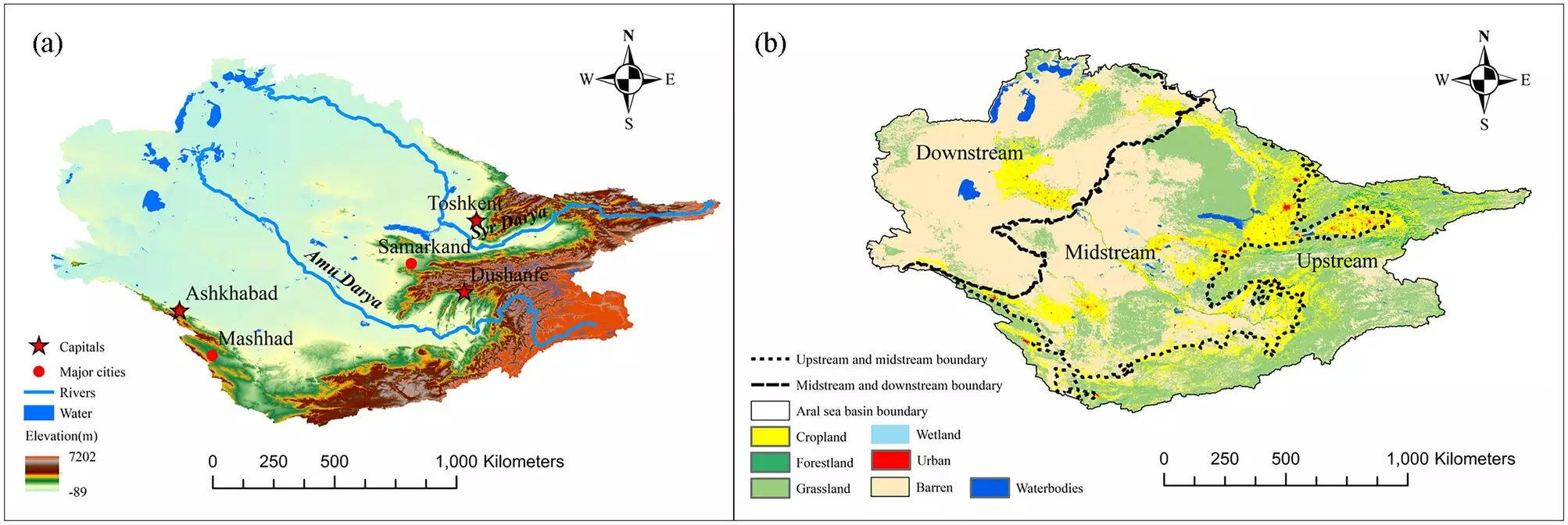The Aral Sea, situated in Central Asia, has been steadily shrinking in surface area due to a combination of climate change and human activities. This drastic reduction in size has triggered a regional ecological crisis, disrupting the key ecosystem services that the region relies on for survival. The consequences of this shrinkage are far-reaching and have significant implications for the environment and the people living in the area.
A study published in Scientific Reports by researchers led by Prof. Yu Ruide from the Xinjiang Institute of Ecology and Geography of the Chinese Academy of Sciences delves into the spatiotemporal changes of four crucial ecosystem services in the Aral Sea basin. These services include water production, soil conservation, carbon storage, and habitat quality. The study utilized advanced models like the Future Land Use Simulation Model (FLUS) and Integrated Valuation of Ecosystem Services and Trade-offs (InVEST) to simulate land use dynamics and ecosystem service provision in the region.
From the period between 1995 to 2020, the researchers observed alarming trends in the Aral Sea basin. There was a significant reduction in water area by nearly 50% and a substantial increase in urban areas by over 500%. Moreover, the decline in cropland, forestland, and grassland coupled with the expansion of bare land and urban areas further exacerbated the existing conflict between agricultural and urban growth in the region.
Looking ahead into the future (2021-2100), the study projected a bleak scenario under the SSP245 pathway, characterized by agricultural degradation. The researchers foresaw a substantial loss of ecosystem services across the Aral Sea basin, with a notable shift in the relationships between habitat quality, soil conservation, and water quantity. It became evident that restoration plans for the region must be meticulously crafted, taking into consideration the complex synergies and trade-offs between different ecosystem service combinations.
This groundbreaking study sheds light on the dynamic changes occurring in the ecosystem services of the Aral Sea basin. It serves as a valuable reference point for devising effective land management strategies that factor in the importance of preserving ecosystem services. The findings underscore the urgent need for concerted efforts to restore the ecological balance in the region and mitigate the escalating crisis unfolding in the Aral Sea.


Leave a Reply